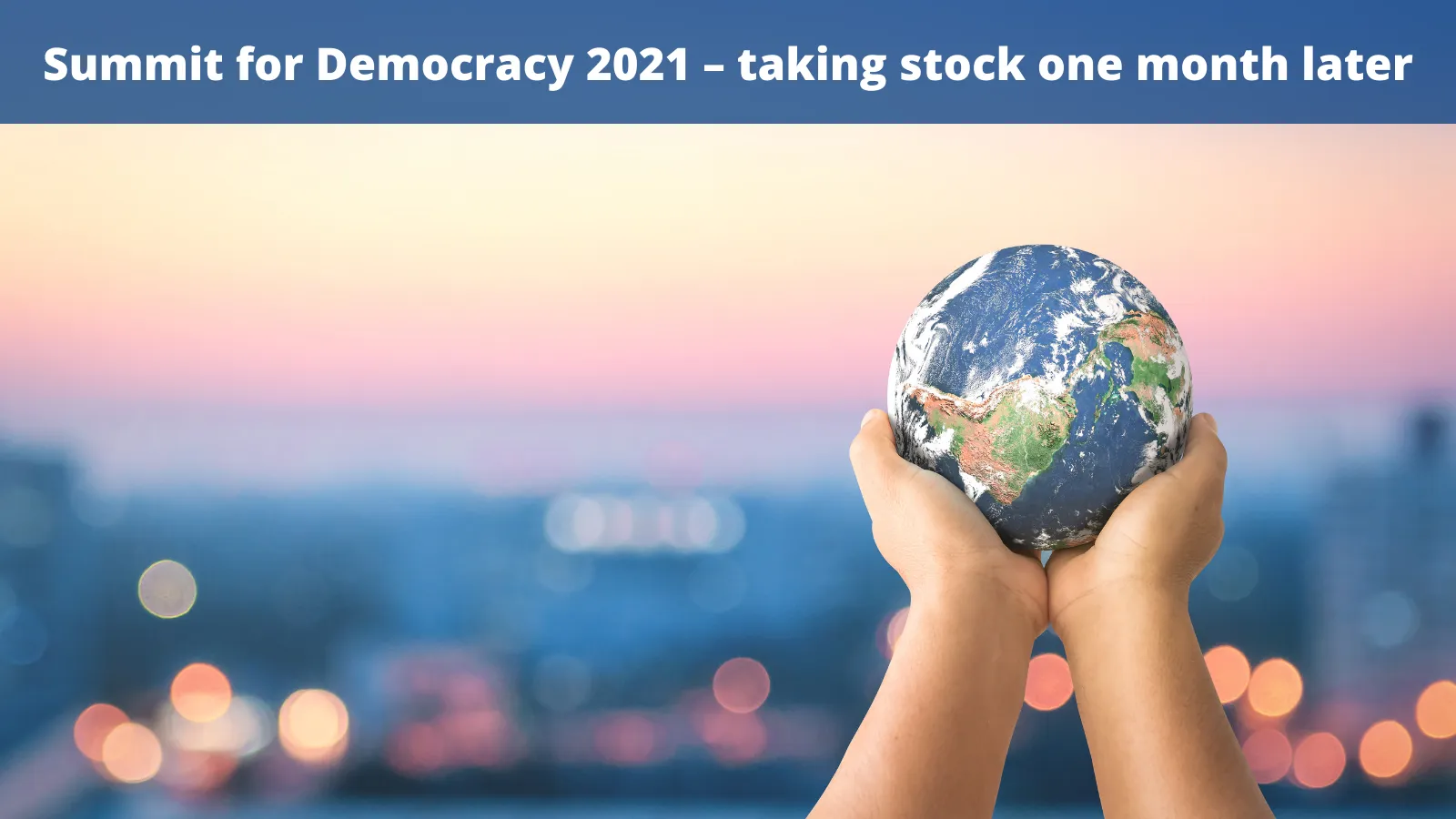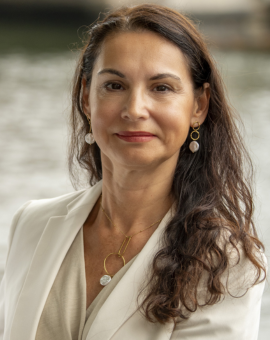Back to overview
Summit for Democracy 2021 – taking stock one month later
January 27, 2022
• By
Annika Silva-Leander

View our themes




